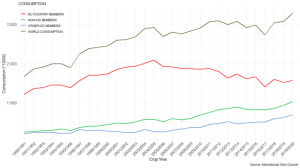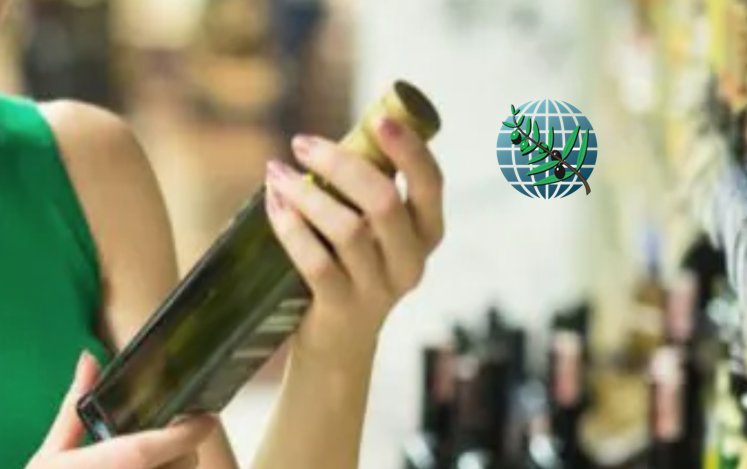 Olive oil consumption has fluctuated remarkably since the 1990/91 crop year. The main feature is rising consumption in non-IOC countries, which has increased steadily from about 14% to 30% of world consumption in previous decades. On the other hand, consumption in the EU has been falling since the 2004/05 crop year, from around 70% of the world total in 2004/05 to around 50% at present. When consumption started to fall in the EU, it increased in the rest of the world.
Olive oil consumption has fluctuated remarkably since the 1990/91 crop year. The main feature is rising consumption in non-IOC countries, which has increased steadily from about 14% to 30% of world consumption in previous decades. On the other hand, consumption in the EU has been falling since the 2004/05 crop year, from around 70% of the world total in 2004/05 to around 50% at present. When consumption started to fall in the EU, it increased in the rest of the world.
The IOC’s study on consumer behaviour was therefore considered necessary to understand the variables involved in consumption and what caused its decline in some countries.
For the study, researchers will review all national and international data published on oil and fat consumption as well as secondary information from public and private sources. They will also conduct a representative survey using a structured questionnaire that consumers can respond to directly.
The study is ongoing. Launched in 2020, it has already covered Spain, Italy and Greece, where consumption has fallen sharply. In 2021, it will cover Argentina, Egypt, Tunisia and Jordan. In 2022, the study will be completed, and other countries will be studied.
The monthly dashboard developed by the Economic and Promotion Unit is available on the IOC website. https://www.internationaloliveoil.org/what-we-do/economic-affairs-promotion-unit/#prices









